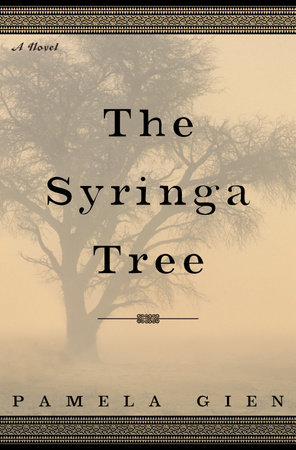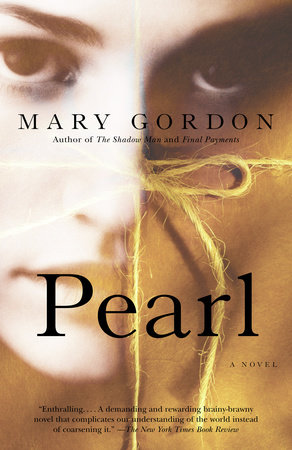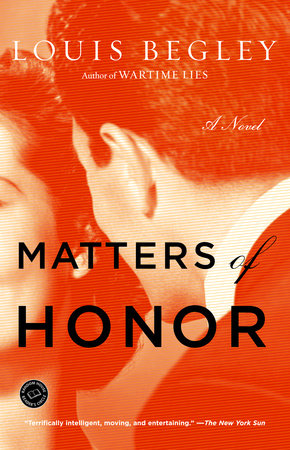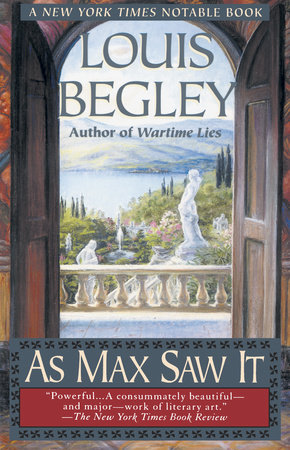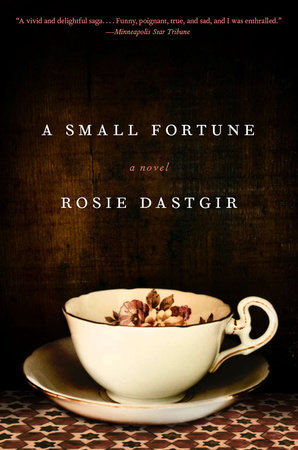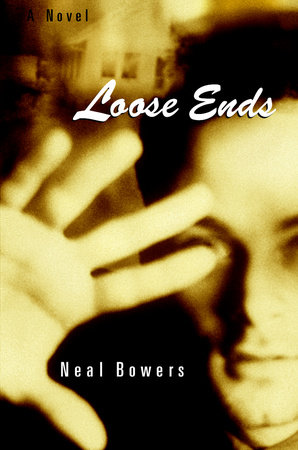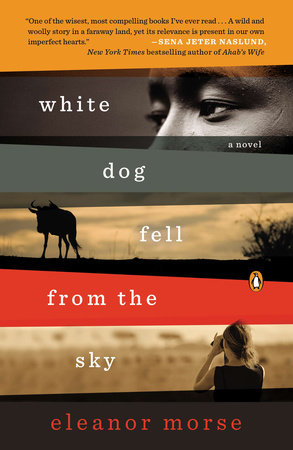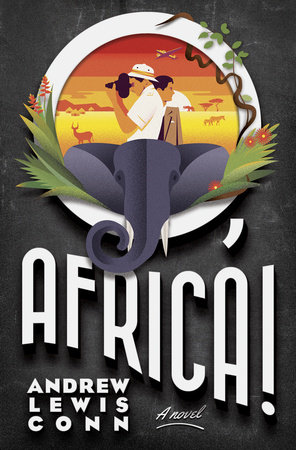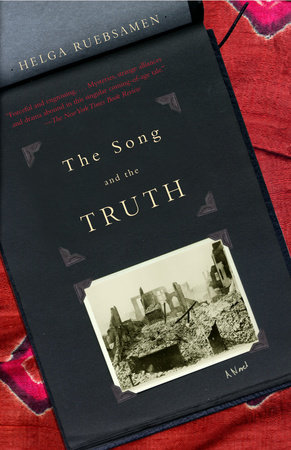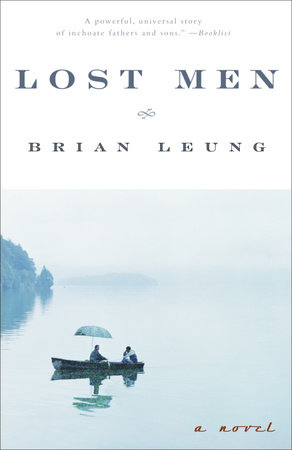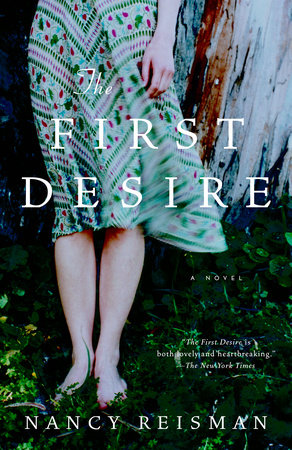Author Q&A
A conversation with Pamela Gien
Matt Salinger is the original producer of the play, The Syringa Tree, both in New York and internationally, and an independent film producer.
Matt Salinger: Some of the reviews of the novel of The Syringa Tree place it on a continuum of South African fiction, and compare your work very favorably to the work of other South African writers: Alan Paton, Nadine Gordimer, and Doris Lessing. I’m wondering how you feel about being classified as a South African writer, and having your novel categorized as a South African novel?
Pamela Gien: Honored, and humbled. These are legendary writers who have contributed wondrous work. I’m just at the beginning, so it inspires me. I very much appreciate the past, the great traditions of storytelling that seep into one from childhood, and from which my own writing must have grown. And it helps me to look to the future, to appreciate writing as a lifetime passion. I love that the book is thought of as a South African novel, especially now. Recently, in Cape Town, I learned that many of the writers who were prolific during the apartheid years stopped writing once Nelson Mandela was released. There was no more struggle, nothing to push against. Young writers there now are being encouraged, to give voice to new challenges–the devastation of AIDS, the orphans it leaves behind, the still-daily struggle of so many adults who lost so much during those years. The Syringa Tree spans four generations, a bridge from the past into the future. It’s hopeful. To be classified as a South African writer honors my roots, honors me.
MS: Yes, I think it’s partly the potent mixture of the almost unbearably sad with the hopeful that so captures us in the story. Could you touch upon who your major influences were, and how it feels to be compared to people such as Nadine Gordimer and Doris Lessing?
PG: You know me well, and you know I never imagined I’d write The Syringa Tree, either as a play or as this novel. I think I always secretly wanted to write, because I love literature, poetry, language in all its varied forms. I’m drawn to dialects, mannerisms, the way a phrase turns, changes. I notice those things because I love them. But I never had the confidence to think that I could tell a story, or really that I had anything at all to say that might be of interest to anyone else. So it comes as a shock to be compared with these writers because I’m only beginning to think of myself as a writer. And while I’m scared to even look at those very kind comparisons, and want to remain simple and pure in my work, of course it delights and inspires me–shots of needed confidence, and I’m grateful for them!
As for major influences, I’d say I loved poetry early on, particularly that of Adam Small, a Coloured poet. He used the words “God’s forgotten,” to describe people of mixed race, classified as Coloured in South Africa. Just two words, but they changed my perception of the place in which I lived. During my first year at Rhodes University, at the formative age of eighteen, I had the great fortune to have the novelist Andre Brink and the poet Guy Butler as lecturers. And then later at the University of the Witwatersrand, I had wonderful teachers like Don McLennon and Barry Ronge. I also attended a lecture there by Yvonne Bryceland, for whom Athol Fugard wrote many of his early plays. She spoke so eloquently, in such a simple but powerful way about bringing his language to life on the stage. And then I saw her perform Hello and Goodbye at the Market Theatre. I began to love Fugard’s words, and I still find him immensely courageous, not only in his writing, but in the struggle he endured to create his work. Nadine Gordimer is a legend to me. Perhaps above all, Alan Paton. Most moving to me is that he wrote Cry, The Beloved Country while away, abroad. The underlying longing, the remembered beauty and cruelty, deeply affected me. As a student I loved Keats, Milton, T. S. Eliot, E. M. Forster, James Joyce, and John Kennedy Toole’s A Confederacy of Dunces. I also loved Toni Morrison. On the silly side, I enjoy Noel Coward’s plays, and a funny book written by Robin Malan called Ah Big Yaws? (I Beg Yours?) celebrating South African dialects, utterly delighted me. One felt so far away from the world in South Africa. Because of censorship, and the massive divide of apartheid, there was not much new propaganda-free political literature around when I was growing up, and not much from the black community because so many were being denied a basic education. It seemed to me that ‘real’ writers were mythical creatures that lived on distant clouds. In The Syringa Tree, Elizabeth says “The sound of the train at Clova . . . always made me feel like I lived nowhere . . . [but] I was really somewhere then.” As an adult, reading Long Walk to Freedom, Nelson Mandela’s book about events that were kept hidden for decades, was like re-learning my own backyard.
MS: Evidently there has been a real interest in, if not more of a hunger for, writing that comes from South Africa for a great many years now. Why do you think that is?
PG: For centuries Africa has been a place of danger, mystery, and magic. The fact that South Africa was mired in the struggle of apartheid, and in the grip of a secretive government that censored dissenting voices (indeed banned them outright) makes the unfolding or telling of everyday life there informative and moving. I remember the words of John Kani, the magnificent South African actor who recently said to me, “It is over ten years now since the end of apartheid. We have banked our freedom. No one can take it from us. We are ready now to hear the stories. We are ready to cry again, to laugh again.” I think there’s so much interest in South Africa because there is a desire to understand a place caught for so long in misery, not in the simplistic terms of black and white but in a deeper, much more personal way. South African literature reveals enduring bonds between people who lived through the struggle, the heroism of great men like Nelson Mandela, and the victory of ordinary men. I think it captivates us because it’s different than what most of us know–an exotic, intoxicating physical and social landscape–and yet it resonates with familiarity, because it is about the triumph of the human spirit. South Africa is a miraculous example of redemption.
MS: The Washington Post reviewer wrote that your “evocative debut novel” is “a subtle layering of tone and detail” and that “The Syringa Tree is beautifully written.” The character of Elizabeth is described as narrating with “Scout Finch-like candor.” Are the themes in the book uniquely South African or can they be read as more universal?
PG: I’ve received many letters from Americans who grew up in the South, or who experienced racial conflict here in this country. The experiences they share with me are very moving, and one realizes that our lives are not that dissimilar. I think people from varied backgrounds, and of any race, can relate to The Syringa Tree precisely because it is not a political saga. It does not hit the reader over the head with a political message. It is universal because it is essentially a human story about a family, about their connections to a magnificent place, and to one another–a story about great triumph in the face of terrible loss. It has been described as a love story. I love that, because that’s how it unfolded within me. I came to understand the profound love I had for a country I had fled. The world, as we know, is full of strife, and leaving a beloved land is not an uncommon experience. Also, because the story is told through the eyes of a small child, we are invited back to that place of innocence within ourselves, that pure place into which we are born before we learn how to fear, how to judge others as different. I think it surprises readers to find themselves, through Elizabeth’s experience, willing to be disarmed, willing to be vulnerable, to feel again all those young feelings. The magic and joy of an African childhood are specific to that faraway place, but familiar to all of us in feeling.
MS: Your work began its life as a play, a play that won quite a number of awards around the world. Can you tell us how and why you translated the theatrical piece into a novel, and how the two works differ?
PG: The play won the Obie for Best Play in New York, to my utter astonishment. You were there, and you said you never saw anyone’s mouth open so wide in shock! It was at that time that Random House commissioned the story as a novel. I was intrigued by the idea of writing it as a novel, but honestly daunted by the magnitude of the challenge ahead. I struggled for a long time to find the right voice. I couldn’t limit the language to a child’s vocabulary, and yet I knew instinctively to tell the story in the first person. What I didn’t know at the time, in fact until my editor, Daniel Menaker, gently informed me, is that writing in this point of view is one of the most difficult things for a writer to accomplish. Once I found the adult voice through the child’s point of view–in other words, the young, immediate but “remembered” experience–I felt as though I’d scaled a mountain and could run down the other side. That’s when I began to enjoy the process, but it took almost two years of work to find that voice. And then it took another three years to complete the novel, so five years in all.
MS: What was the writing process like for you?
PG: I realize now that finding Elizabeth’s voice required a kind of personal bravery. I suppose writing any novel does. One has to be willing to be vulnerable on the page, to allow deepest thoughts and feelings to emerge without fear of judgment. I’m a very private person, perhaps even a bit shy, so the first two years of writing were really about giving myself permission to write freely. And then the reward, I think and hope, is that what is on the page is vested with emotional truth. Larry Moss, the wonderful director of the play, used to say to me in rehearsal that an artist has to be willing to go to the most painful place within. I remembered those words in the solitary years of writing the novel, and they helped me to be courageous. Writing opens up a well of emotions: grief, shame, joy, pride, confusion, and then the peace of clarity. Also having great friends like you, and Jayne Brook–who kindly read for me and let me know what was on the page and what wasn’t, and who guided and encouraged me through the loneliest times–was invaluable. And I’m grateful too to have had skilled editors in Dan Menaker and Stephanie Higgs. And Heather Schroder, my invincible agent, who persuaded me to write the book in the first place, and buoyed me up till it was done. Five years can seem like an eternity, so it’s good to have caring anchors. Much of the process was also joyful. What one can accomplish in the scope of a novel, in terms of history and context, is immense, and having an unlimited canvas, within the bounds of disciplined writing, of course, is lovely. Playing with memory, with imagination, is lovely. Dreaming of what could have been, or what might be, is lovely.
MS: If you had written the play after having written the book, instead of the other way around, do you think the play would be different?
PG: I’m extremely lucky to have the opportunity to work on this story in different forms. Each form has its challenges and limitations, and each has its strengths. It’s like fitting a beautiful puzzle together in different ways. I’m very glad the play came first, because it was organic, and emotionally raw to begin with, and then rigorously cut to the ninety-minute confine required by the theater. I feel proud now of the discipline in the text–not one extra word, nothing superfluous. I learned from that rigor and applied it to the novel. And you reminded me along the way to “make every word count”! My greatest fear was that the novel would not ‘live’ on the page in the same way, but I’m relieved to hear from readers around the world that they find the book both funny and powerfully emotional. It’s a gift to hear that. I’m working on the screenplay now, the third incarnation of the story. The language of film demands the telling of the story in a whole new way. It’s exciting.
MS: After several very public tussles, it seems that authors these days are increasingly sensitive about calling their work “memoirs.” You do not, and yet I understand that some of the events are inspired by your own life. Can you describe why The Syringa Tree is not a memoir but a work of fiction, and how you draw the line between the two?
PG: The Syringa Tree is based on a true, catastrophic event that occurred on my grandparents’ farm in South Africa when I was a young child. Obviously, as an adult now, recreating it on the page requires a blend of memory–recalling what I was told at the time–and imagination, since one cannot ever, especially as a child with all that is concealed for one’s own protection, be privy to every detail. When I first began to tell the story, I was writing completely autobiographically, thinking no one else in the world would ever see it, and that it was purely an exercise for a class I was taking. I had no idea at the time that it would become a play seen around the world! Once it had tumbled out in its earliest incarnation onto the page, I discovered I had no interest in writing a factual account of my life, and realized that if I fictionalized it, wrote ‘away’ from myself, I could tell a story that held a deeper fascination for me as a writer, a story I felt was telling itself within me. I got quiet, and listened for that whisper. I began to trust it more and more, and then to love the freedom of combining language and images from real memory, but woven into a broader story that belonged to all of us, not just to me. I’m often asked if Elizabeth is me. While I have no objective memory of myself as a child, I remember acutely how I felt. Elizabeth is deeply invested with my childhood feelings, fears, delights, excitement, and dread. Certainly some of her is rooted in memory and actual events, but she is imbued more with the feeling of my life than the actual facts. Similarly, some of the characters are inspired by people I knew and loved then, but they are also removed from “memoir” because sometimes they are composites of several people, sometimes based on just one remembered characteristic, sometimes on the characteristics of an entire community. I’m relieved I made this choice early on. It was a decision that gave me a wonderful liberty to tell the story I heard in my heart and mind. And I believe it’s the reason I receive so many letters from people who thank me for telling “their” story. I’m always profoundly affected by that. Recently, in South Africa, people of different races–black, white, and mixed race–said those words to me again and again. So, something that was so personal to me, something I never imagined would have meaning to anyone else, has so much resonance for others. It’s heart stopping. It means more to me than anything.
MS: The main character in the book, Elizabeth Grace, leaves South Africa during her University years. Is that when you left?
PG: No, but I was thinking of it then. One of my earliest memories is of my father encouraging me to leave, fearing for the future of the country under apartheid. “Don’t ever make this place your home, Elizabeth,” Dr. Grace says in the novel. I completed my honors degree at the University of the Witwatersrand, studied in Paris for a year, and then worked in South Africa for four years before leaving.
MS: Why did you leave? Did it take courage to leave, and/or did it take courage to stay? And how do you feel about being South African these days?
PG: I left for two reasons. I was curious about the world, especially America. I’d dreamed of living here as a young child, seeing it in films at the drive-in. And as I got older, it became a symbol of hope to me, a place where people were indeed deemed equal. As my eyes opened to the real situation in South Africa, I couldn’t reconcile myself with what was happening there, and I did not know how to fix it. I was politically na•ve, and scared. It seemed to me that one had three choices: to become a revolutionary for change and face solitary confinement, even death; to close one’s eyes to what was happening, extending help and kindness to those one encountered in daily life; or to leave, and try to make a difference elsewhere. So that idea, combined with the natural curiosity of a young person, fueled my decision. I didn’t realize until much, much later how complex, how sad, how confused my real feelings were about South Africa. I buried them, ran from them. But as most people know, one cannot escape one’s own heart for long. When I first began work on the play and was strenuously resisting all that emotion, Larry said to me, “You think it is shame you feel, but really it is grief–profound sadness for a place you obviously love and miss so much.” I must have wept for three days. It helped me to understand, to move forward. It gave me permission to express that love, and that’s really what The Syringa Tree is. I feel enormously proud to be South African, and humbled to learn from that country’s journey of forgiveness. And I’m also grateful to have earned American citizenship, to feel part of a place that has extended such generosity towards me. I’m very lucky to have both.
MS: Elizabeth goes back years later in the novel, looking for a certain kind of resolution to her pain and conflict. Is this something that you have been able to do?
PG: Thankfully, yes. I believe I wrote Elizabeth’s journey as a wish for my own life, and for South Africa. My return there after many years of feeling unable to do so was nothing short of ecstatic. I cried when the wheels touched down at Johannesburg’s airport, the place I’d left from, all those years ago. And I cried when I left again, and have done so every time since! It’s a beautiful place, filled with love and tremendous kindness. And joyful! John Kani, again, said to me, “Some of us still walk at the side of the roads in vlenterbroek [ragged pants], but now we walk with faces up!” And that’s what I feel when I’m there. The faces up! It’s miraculous. And there are so many people now doing committed work to help South Africa, both on a large scale and on a small, personal one. The country really does have a future. And I don’t mean to sound na•ve. There are tremendous problems to be resolved. But now, with faces up!
MS: How did developing and then playing the various characters in the play help you when it came time to write them for the novel?
PG: It helped enormously. I had worked so hard to create and bring them to life, and then perform them for magnificent audiences. I’m very lucky and extremely grateful to have had such in-depth work with them, to have ‘lived’ with them. They have become an integral part of my spirit. I know how they speak, how they think, move, live. And I love them. So it was a pleasure in many cases to expand them, to bring to light more aspects of each character. It’s work I treasure, because it unfolds mysteriously, almost from a spiritual place– it’s like entering into the soul of another, with respect and integrity. For me it’s about listening, allowing the character to inform and enlighten me. I suppose it’s about instinct, really. Often it’s surprising, and great fun.
MS: Were you intimidated at all to write the many black characters in the novel?
PG: Of course. I’m not black, and I approach those characters with the utmost love and respect, with my best effort to feel what it must be to walk in their shoes. I don’t think one ever really can know what it’s like, unless one has suffered those indignities. I can never say I really know what people felt as they got off the trains in Auschwitz after those grueling journeys. But I believe one can empathize deeply, and that as a writer, one has, in fact, a responsibility to do so. I think readers love the characters of Salamina, Zephyr, Iris, and Mollie so much because they “feel” them, not through an explanation from me of what the characters are feeling, but through their actions, their example. And I bring my own love to the writing from my early memories: the smell of Sunlight soap on my nanny’s skin, her skin against mine– indelible images. What one hopes for is something truthful and real on the page, not a clichŽ, shadow, or stereotype. It’s sometimes hard to write painful things from that era, but they must be part of the story, because they affected the lives of millions of people. And they continue to affect people today wherever racism occurs. You were there, Matt, when we took the play home to South Africa. A lovely thing happened. Numerous black South Africans had seen it in the States and in London, and had told me, many through tears, that it honored them–probably the greatest tribute one could wish for as a writer. I was anxious about how it would be received in South Africa. And it meant so much to me personally, to finally take it home. I felt hopeful because I knew well from growing up there that despite the separation designated by apartheid, there is an intimacy between black and white, a kind of unspoken camaraderie or connection that is uniquely South African. As fate would have it, my first audience in the 700 seat theatre was almost entirely black South Africans–mostly writers and artists. Very different than anything I had experienced elsewhere. They were interactive with me, like a church congregation, very vocal, sometimes even playful, throughout. I had no idea what they were thinking. Towards the end, they grew silent, and I heard what I can only describe as a wave of grief through the theater. At the end, they raised the roof with their cheers. I thought, “I’m finally home!” What a gift they gave me. Complete acceptance. They had no judgment for a white girl playing black characters. Compassion for all that had passed, celebration for all that is new.
MS: You have dedicated this book to the children of South Africa. Why is that?
PG: Because old and young, near and far, they have been through so much, and have much still to overcome. The children of today’s South Africa, especially–a rich and glorious blend of beautiful faces that not too long ago stood a world apart from one another. They stand together now, but are still paying a hefty price. They are filled with breathtaking optimism. They show us the way.
MS: Are you planning on writing another novel, and if so, will it be set in South Africa again or in your adopted country of America?
PG: I have another South African story haunting me, and just as I wrote parts of The Syringa Tree while in South Africa, I’d love to spend some good writing months there again. The Wilderness coast is an inspiring place. I also have a story about an American family that I might like to set down as a novel.
MS: If there is one theme that you would like readers to take away with them, or perhaps to keep in mind even when reading the novel, what would it be?
PG: That the color of our skin does not matter–only what is in our hearts is of consequence.
